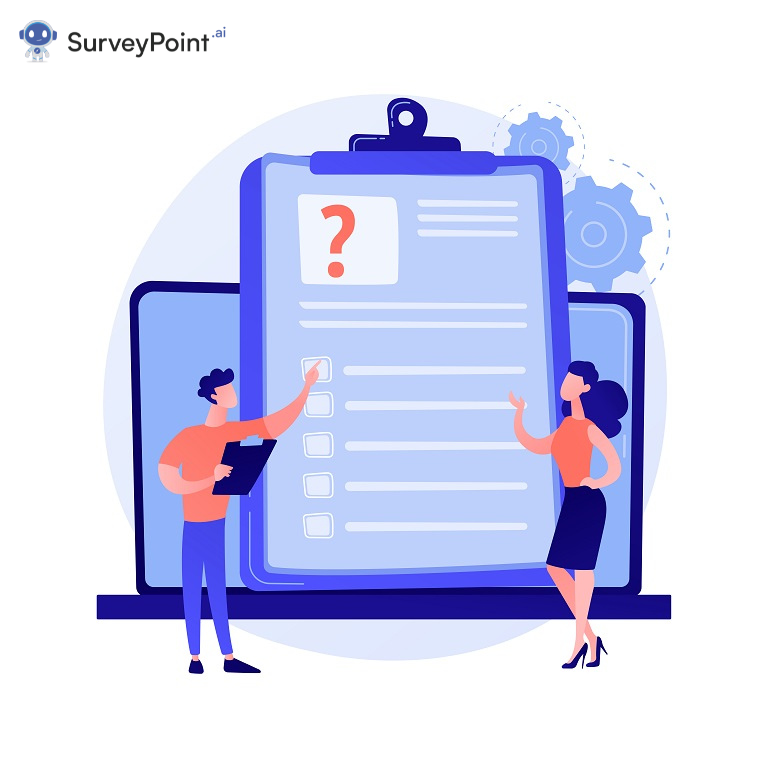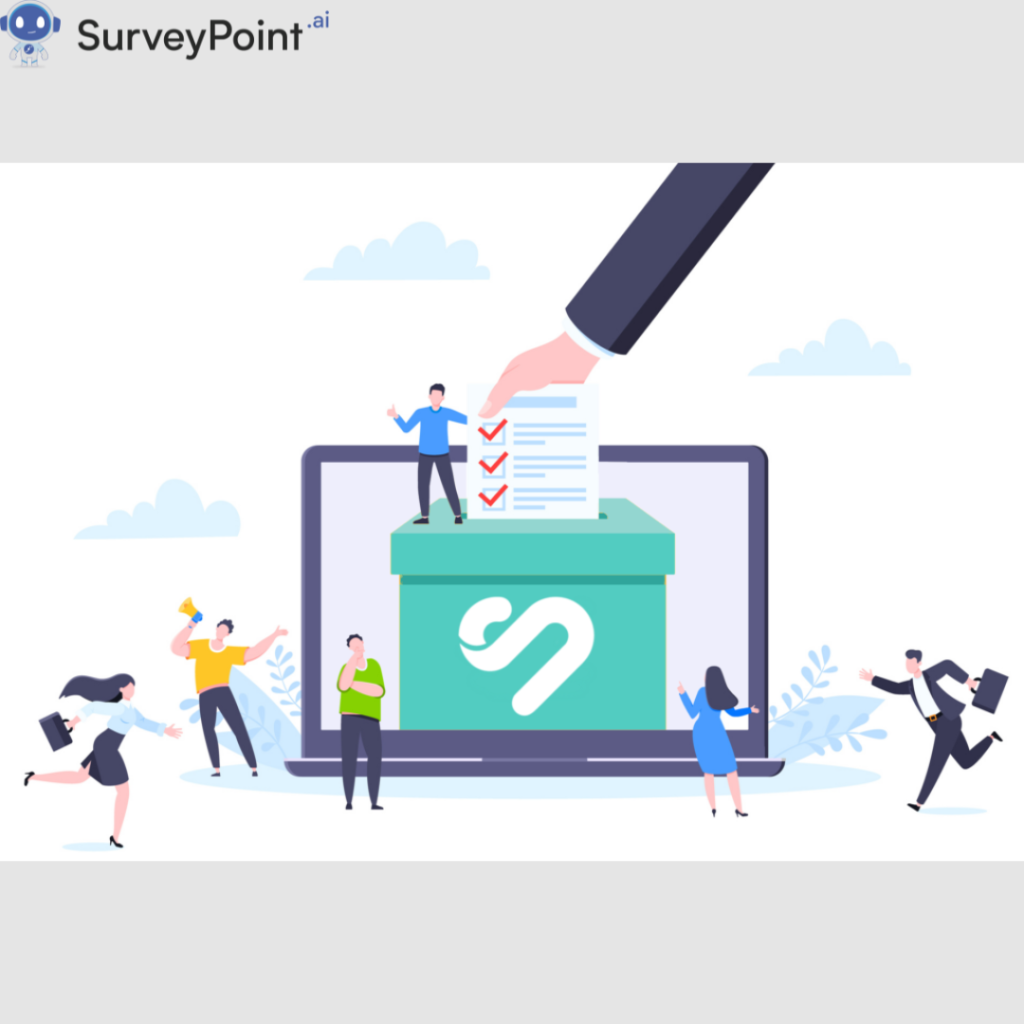
Do you need ideas for employee NPS survey questions to ask and determine how loyal your customers are?
Employee Net Promoter Score (eNPS) is a tool similar to the customer NPS (Net Promoter Score), which helps businesses measure customer satisfaction and find unhappy customers. eNPS is used to find out how happy employees are with their jobs and to get their ideas on making them more loyal to the company.
Using an NPS survey template to prepare the survey is helpful. How can companies use net promoter score questions for internal customers and other online surveys to improve the workplace? Here, we’ll talk about some essential things to think about and give you NPS survey questions examples that you can ask your staff for a Net Promoter Score survey.
Employee Net Promoter Score: What is it?
Employee Net Promoter Score (NPS) is a metric that shows how likely employees are to spread the word about their workplace’s greatness. It’s usually found by asking employees questions like, “On a scale of 0 to 10, how likely are you to recommend our company as a great place to work?” and then put their answers into three groups: Promoters (score of 9–10), Passives (score of 7-8), and Detractors (score of 0-6). When you deduct the percentage of detractors from the percentage of promoters, you get the final score, which can be anywhere from -100 to +100. A high employee NPS means that employees are delighted and interested in their jobs, which can be a big part of a company’s success. NPS question wording plays a massive role in a high-quality survey.
How many questions are in an NPS survey depends on what the company is looking for and the target agenda of the survey.
Now that we know an employee net promoter score, let us look at some NPS survey examples.
Employee NPS Survey Questions Examples
You now understand the employee net promoter score. But the actual value of an ENPS survey comes from the questions you ask. With them, you will be able to get the information you need to act.
So, without further ado, here are the three categories of the most often asked employee NPS survey questions.
For your convenience, we are giving you a set of NPS survey question examples to guide you. You can use these sample questions to create your own NPS survey. Once the survey is completed, companies can use the NPS follow-up email template to follow up with the employees.
Rating Survey Questions
Most ENPS surveys comprise rating scale questions, which people can answer anywhere from 0 to 10. Typically, companies only use one or two types of questions like this, which can get boring after a while. Here are 15 questions to ask on your NPS survey for employees, all based on a rating system.
- How likely are you, on a scale from 1 to 10, to tell others about us?
- On a scale from 0 to 10, how likely are you to suggest our products or services to friends and family?
- Using a scale from 1 to 10, how likely are you to recommend us based on your latest employee evaluation?
- How likely are you, using a scale from 1 to 10, to suggest us, keeping in mind the values that we hold dear as an organization?
- How likely are you, on a scale from 1 to 10, to tell others about our incentive program?
- How likely are you, on a scale from 1 to 10, to brag about our CEO to your pals?
- How likely are you, on a scale from 1 to 10, to recommend [business name] to your friends and family?
- How likely are you, on a scale from 1-10, to recommend [business name] as an employer?
- Please rate how likely you are to suggest our services and products to others who share your interests on a scale from 0 to 10.
- How likely would you be to do so if you were asked to promote [product name] to your friends and family based on the demos you saw?
- How much would you want people you know to join [business name]?
- Please rate [business name]’s excellence award program on a scale from 1 to 10.
- How likely is it that [Business Name] will win the award for the finest company culture?
- How likely are you, on a scale of 1 to 10, to say that [Company Name] is the best workplace?
- Based on your past interactions with us, how likely are you to recommend us to others?
Open-Ended Questions
With the questions on the rating scale, you can figure out if an employee is a promoter or not. However, you must determine what factors led them to make this decision and how content they are with the company. Based on how an employee is rated, you can ask them a relevant, open-ended question.
Here, choose from among 15 additional open-ended questions for your following NPS survey of employees;
- Please tell us why you chose each rating option so we can learn and improve.
- How would you sum up your time here in one sentence?
- What do you find most appealing about [business name]?
- What are your main issues while dealing with [business name]?
- Please tell us what makes us the best option to suggest to your friends.
- Why don’t you promote [business name] more, or why do you actively work against them?
- Which of the following is why you would not suggest our services to a friend?
- What do you think is the leading cause of workplace disinterest?
- Tell us about the one thing you wish had been different about your time here at work.
- Can we make communication with you easier?
- In what areas does [business name] excel?
- How can we better serve your needs so that you will recommend us more frequently?
- Are there any tools you could use more of?
- Why did you choose to work for [business name]?
- Is there anything we missed that would have been helpful to know?
Close-ended Questions
Asking simply open-ended questions as a follow-up to the rating questions is insufficient in an NPS survey of employees. Nevertheless, the fundamental argument against this survey method is the uniformity it imposes on the whole. As a result, it is recommended to include two closed-ended questions in addition to the rating-scale and open-ended questions. This can be a true/false, multiple-choice, or Likert scale question.
Additionally with these questions, we’ve got you covered.
- How happy are you with your job here? (Dissatisfied/Neither satisfied nor dissatisfied/Satisfied)
- Are you happy with the way we run things here? (Yes/No)
- Being a part of [business name] has given me a sense of purpose in life. (Yes/No)
- Most days, I look forward to going to work because I am excited to see what the day will bring. (Yes/No)
- For [business name], I am always prepared to go above and beyond expectations. (Totally Agree, Agree, Neutral, Disagree, Disagree Strongly)
- In [X] years, I can see myself being employed here. (Yes/No)
- As an employee, I can say that [business name] is an excellent choice. (Yes/No)
- Do you feel like you can advance in your career here? (Yes/No)
- Have you been given clear and constructive criticism along with your key performance indicators and other expectations? (Yes/No)
- Do you think you can do your best work because of the encouragement you get from your team and supervisor? (Yes/No)
- Are you seen as an essential part of this business? (Yes/No)
- Does [business name] have a clear purpose statement, and does it motivate you to produce your best work daily? (Yes/No)
- Do we know how to honor your accomplishments properly?
- How well did we do in meeting your needs? (Significantly exceeded expectations/Met expectations/Did not meet expectations)
- How do you feel about the work that we’re doing? (Very happy/Happy/Not very happy/Not happy at all)
- Working for [brand name] is crucial to me because of its impact on the world. (Yes/No)
- Leaders at [Brand Name] made understanding the company’s goals easy. (Yes/No)
- I think [business name] has a great culture and would be an excellent environment for me to develop professionally. (Yes/No)
Conclusion
Lastly, an ENPS survey, also called an “employee net promoter score,” is the best way to determine how happy your employees are with their work at your company. The employee experience is affected by the workplace’s design, the company’s culture, and technology.
When an employee is disconnected, and neither you nor the HR team knows about it, your business, productivity, and income will all go down. Staff members who are happy at work don’t think about taking time off. So, evaluating scores after employee NPS survey questions can show whether disengaged workers will cause high turnover costs. These benefits are enough to convince any organization to use ENPS surveys. If you’re looking to get an employee net promoter survey designed, you must visit Survey Point.




